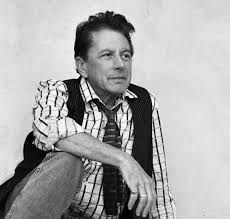On This Day (2 October): Let It Be
- jamesgeraghty
- Oct 2, 2022
- 4 min read
No, not that one!
Chaotic. Dysfunctional. Awkward. Discordant. Cheeky. Rocking. Essential.
Just a few of the words I can use to describe the works of The Replacements at any stage of their career, but especially on this, possibly their best album.

Released on this day 39 years ago, in 1984, on the Twin/Tone record label, Let It Be is, as Rolling Stone put it when ranking it as #156 on the all-time album list, 'a cornerstone for Alternative Rock in the 80s.'
Recorded at Blackberry Way studios in Minneapolis, the band originally had planned to get Peter Buck of newly hip REM, to carry out production duties. But when they met up with him, they didn't have enough material ready, so the duties ended up being done by Steve Fjelstad, Peter Jesperson and Paul Westerberg himself.
After the more frantic punk of their earlier work, Let It Be saw The Mats moving away from that, and while retaining much of the raw, garage ethos, they had added some melodic chops to proceedings. The album deals with themes of angst, awkwardness and coming of age - Westerberg thought it to be "a little more sincere."
The album cover is one of the iconic ones of the 80s post-punk era and was shot on the roof of the Stinson brothers mom's house.
"We were going to call it Whistler's Mammy and then we were going to call it Stunk [their first album was called Stink]. And then we decided that the next song that came on the radio was going to be the album title. The next thing you know, 'When I find myself in times of trouble...' comes on the radio." (Westerberg quoted in an article in Magnet, August 2021)
Fun Fact: While he might not have ended up producing the album, Peter Buck did play the little guitar solo on opening track, I Will Dare. This song is also sung by Keanu Reeves and Cameron Diaz in the 1996 film, Feeling Minnesota.
The Album:
Chris Mars (drums)
Bob Stinson (guitar)
Tommy Stinson (bass)
Paul Westerberg (guitar / vocals)
The album opens at blistering pace with I Will Dare and Favorite Thing, two jangling, ballsy, indie classics. Androgynous is a tender and forward look at teenage struggles with identity - "people dress the way that they please" - all that matters is that "they love each other so."
https://youtu.be/_bwmLojCMR4 (I Will Dare - live)
Black Diamond is more of a straight up 70s-ish rock song, which is not surprising, given that it is a Kiss cover, while Unsatisfied is an out and out rock epic. Westerberg's throaty growl is fragile and stretched to the max over a loping, arpeggiated slice of rock. The tongue is (probably) firmly in their cheek with Gary's Got A Boner - more 70s Aerosmith inspired chugging rock, with a wry take on young male issues.
https://youtu.be/DU6IndADEWI (Unsatisfied)
Sixteen Blue is the definitive song of teenage adolescent awkwardness. The sort of song John Hughes would have killed to have in one of his movies. The music broods and Westerberg's voice ebbs and falls across it - "And your age is the hardest age, everything drags and drags."
https://youtu.be/mYnXvP_1rsw (Sixteen Blue)
The record closes with Answering Machine. Drum-free, but with a really nice, swirling, chunky guitar riff that repeats through the song, which is a reflection of their dislike of the answering machine - truly the issue of a different age!

The legacy:
Colin Meloy, from The Decemberists, wrote the book on Let It Be for the 331/3 series. "I listened to Let It Be endlessly. The record seemed to encapsulate perfectly all of the feelings that were churning inside me... Paul's weary voice sounded from my boombox and I trembled to think that here I was, thirteen and the 'hardest age' was still three years in the making."
Robert Christgau, noted critic in the Village Voice, gave the album an A+ rating and had it sitting at number two in his end of year chart for 1984. Stephen Thomas Erlewine, writing a later review on Allmusic, says, "It's all a ragged mess, careening wildly from dirty jokes to wounded ballads, from utter throwaways to songs haunting in their power.... This blend of bluster and vulnerability is why The Replacements were perhaps the most beloved band of their era, as they captured all the chaos and confusion of coming of age in the midst of Reaganomics, and Let It Be is nothing if not a coming of ae album, perched precisely between adolescence and adulthood."
The legacy of the album, and the band, is clear. Rolling Stone puts Let It Be in the same vein as Daydream Nation (Sonic Youth), Murmur (REM) and Surfer Rosa (Pixies), for essential alternative albums of the era. The influence was wide ranging; Johnny Rzeznik of the Goo Goo Dolls said that Paul Westerberg was "an obvious influence." The Cribs, They Might Be Giants and even alt-country pioneers Uncle Tupelo, all cited The Mats as an inspiration. Brian Fallon said in a 2009 interview, "without The Replacements, there would be no Gaslight Anthem."



Comments